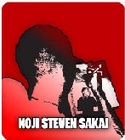Is it okay for a person who is non-Japanese American to write about the Japanese American (JA) experience? My immediate reaction is no. I’m sick of other people writing my history and stories. I’m sick of having my culture hijacked, even by those who have the best of intentions.
Can a person who is non-Japanese American capture what it is like to be Japanese American in a true and authentic way? My immediate reaction again is no. They can try to put themselves in my shoes but ultimately they could never fully know what it means to be JA.
So when I see films and books written by non-Japanese Americans about Japanese Americans a part of me always cringes and the story suddenly becomes inauthentic. Actually, it pisses me off. Someone else is trying to tell me my own story. And worse yet, they are trying to pimp it out to the rest of the world.
Being a JA writer, I should be the one telling the JA story. I should be the one that interprets to the rest of the world what it is like being Japanese American. What it looks like. What it tastes like. What it smells like. Since who knows how it feels better than me?
Does that mean then that a writer who is Japanese American can’t write story about non-Japanese American people? To be consistent the answer should be no. A JA person has no idea what it feels like to be anything other than JA.
So I can only write about my own experiences that I see through my own eyes. And when I write beyond my knowledge, I run the risk of being criticized (by people like myself) for trying to be something I can never truly comprehend.
This means that I’m stuck writing about Japanese Americans for the rest of my life. It means that I can’t write about any other groups of people. That depresses me. It’s not that I don’t want to write about JAs, I do. I just don’t want to be limited to writing one story.
But how do I write about other people and do it in a way that doesn’t feel like I’m stealing their culture and repackaging it? Because I know how it feels when non-Japanese Americans do that to Japanese Americans, I’m super sensitive about it. I’m so sensitive that sometimes I end up not being able to write anything at all.
Once I was told by a director I was working with that before we met in person he thought that I was Kenyan. He said I captured the African American urban voice so well he assumed one of my parents had emigrated from Africa. That made me think. What do I know about being black?
MTV. Gangster rap. Boyz ‘N the Hood. BET. Sports. Clarence Thomas. Barrack Obama. Jazz. Cornell West. Martin Luther King Jr. Rock & Roll. Malcolm X. Rosa Parks. Booker T. Washington. Collin Powell. Tupac Shakur.
In other words, I don’t know anything. What business then do I have writing about African Americans? I have no business writing about them. What about Chicanos? Native Americans? Gay and lesbians? Southerners? New Yorkers? I shouldn’t be writing about them either.
Of course, this doesn’t stop me from writing their stories. I try to focus on themes that run across racial, ethnic, social economic and geographical lines. Things I know like love, anger, loss and sadness. Things that everyone feels. Things that make us human. I stay as far away from race, politics and identity as I possibly can.
But how do you talk about love, anger, loss and sadness without talking about race, politics and identity? And how do you know about race, politics, and identity without having walked in that person’s shoes? You can’t.
Friends tell me that I should just not specify race in my stories. That way I can avoid all of these kinds of troubling thoughts. The problem with that is that when you don’t specify race (in America) it is automatically assumed that the character is Caucasian.
Which is all right because I can write Caucasian well. Most people of color learn quickly how to be both ethnic and white. It’s often the difference between success and failure in this country.
However, writing only about JAs and about Caucasians still feels limiting. We are a much more diverse country than that. I have to constantly remind myself that no one group owns the sole right to their story. If it’s public, anyone has the right to write it. What’s important then is not who is writing what but the quality of the piece itself. Is it interesting? Is it well written? Does it resonate? And most importantly, is it honest?
So just because I’m Japanese American doesn’t mean I have a better handle on the JA story or that I can’t write outside the JA experience. The most important thing is to make sure that what I write is truthful to the people I’m writing about (Japanese American or otherwise).
© 2007 Koji Steven Sakai






